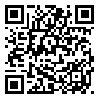Volume 13, Issue 2 (9-2021)
2021, 13(2): 77-85 |
Back to browse issues page
Ethics code: IR.SBMU.PHNS.REC.1398.078
Download citation:
BibTeX | RIS | EndNote | Medlars | ProCite | Reference Manager | RefWorks
Send citation to:



BibTeX | RIS | EndNote | Medlars | ProCite | Reference Manager | RefWorks
Send citation to:
Ramezankhani A, Mohammadi M M, Soori H, Jamali T. The Effect of Educational Intervention on the Knowledge, Attitude and Behavior of Fall Prevention. North Khorasan University of Medical Sciences 2021; 13 (2) :77-85
URL: http://journal.nkums.ac.ir/article-1-2364-en.html
URL: http://journal.nkums.ac.ir/article-1-2364-en.html
1- Professor, Department of Public Health, School of Public Health and Safety, Shahid Beheshti University of Medical Sciences, Tehran, Iran
2- Assistant Professor, Department of Public Health, School of Public Health and Safety, Shahid Beheshti University of Medical Sciences, Tehran, Iran
3- Professor, Department of Epidemiology, School of Public Health and Safety, Shahid Beheshti University of Medical Sciences, Tehran, Iran
4- M.Sc. Student of Health Aging, School of Public Health and Safety, Shahid Beheshti University of Medical Sciences, Tehran, Iran ,jamali@sbmu.ac.ir
2- Assistant Professor, Department of Public Health, School of Public Health and Safety, Shahid Beheshti University of Medical Sciences, Tehran, Iran
3- Professor, Department of Epidemiology, School of Public Health and Safety, Shahid Beheshti University of Medical Sciences, Tehran, Iran
4- M.Sc. Student of Health Aging, School of Public Health and Safety, Shahid Beheshti University of Medical Sciences, Tehran, Iran ,
Abstract: (2997 Views)
Introduction: As the elderly population grows, so does the prevalence of fall. Designing self-care programs against falls is possible with the right information from the target group. The aim of this study was to determine the knowledge, attitude and behavior of fall prevention in the elderly in day care centers.
Methods: This quasi-experimental study was conducted on all elderly men and women aged 60 years and over in the adult day care centers of Gilan Province in 2019. The samples were randomly divided into 2 groups control ( n=44) and intervention( n=37). The intervention group were given education on fall and methods of preventing it. Data were collected using the tool was a researcher-made questionnaire that after validity and reliability was completed in three stages, before, Immediately and 5 months after the intervention. Data was analyzed using SPSS 16 software and statistical tests of mean and standard deviation, chi-square, independent and paired t-test and repeated measures analysis of variance All stages of the present study were performed according to ethical standards.
Results: There was no statistically significant difference between the two groups of intervention and control in terms of demographic variables and mean scores of knowledge, attitude and behavior before the intervention. In the intervention group, comparing the mean scores of knowledge in the three stages showed a significant difference, the mean score of attitude 5 months after the intervention increased significantly and mean scores of behavior 5 months after the intervention showed a significant decrease. The significant level was considered at less than 0.05.
Conclusions: Educational intervention is effective in increasing the knowledge and attitude of the elderly about fall and its prevention. It is suggested that other interventions be used in addition to education to improve fall prevention behaviors
Methods: This quasi-experimental study was conducted on all elderly men and women aged 60 years and over in the adult day care centers of Gilan Province in 2019. The samples were randomly divided into 2 groups control ( n=44) and intervention( n=37). The intervention group were given education on fall and methods of preventing it. Data were collected using the tool was a researcher-made questionnaire that after validity and reliability was completed in three stages, before, Immediately and 5 months after the intervention. Data was analyzed using SPSS 16 software and statistical tests of mean and standard deviation, chi-square, independent and paired t-test and repeated measures analysis of variance All stages of the present study were performed according to ethical standards.
Results: There was no statistically significant difference between the two groups of intervention and control in terms of demographic variables and mean scores of knowledge, attitude and behavior before the intervention. In the intervention group, comparing the mean scores of knowledge in the three stages showed a significant difference, the mean score of attitude 5 months after the intervention increased significantly and mean scores of behavior 5 months after the intervention showed a significant decrease. The significant level was considered at less than 0.05.
Conclusions: Educational intervention is effective in increasing the knowledge and attitude of the elderly about fall and its prevention. It is suggested that other interventions be used in addition to education to improve fall prevention behaviors
Type of Study: Orginal Research |
Subject:
Basic Sciences
Received: 2020/12/6 | Accepted: 2021/03/13 | Published: 2021/09/14
Received: 2020/12/6 | Accepted: 2021/03/13 | Published: 2021/09/14
Send email to the article author
| Rights and permissions | |
 |
This work is licensed under a Creative Commons Attribution-NonCommercial 4.0 International License. |







